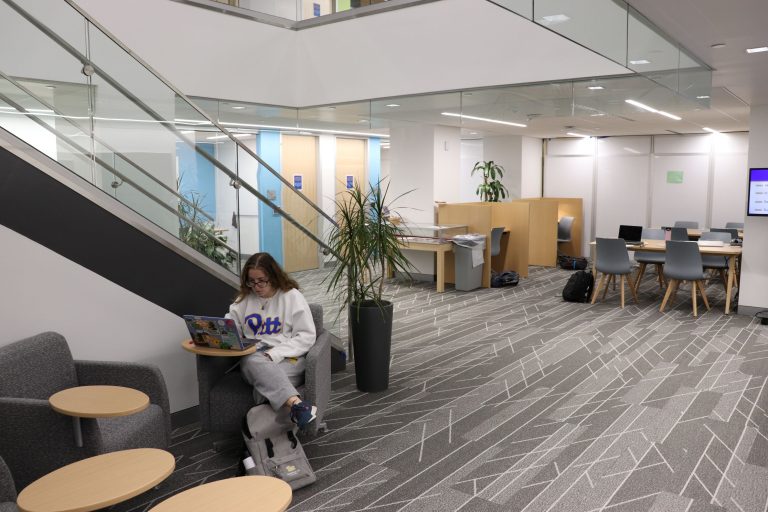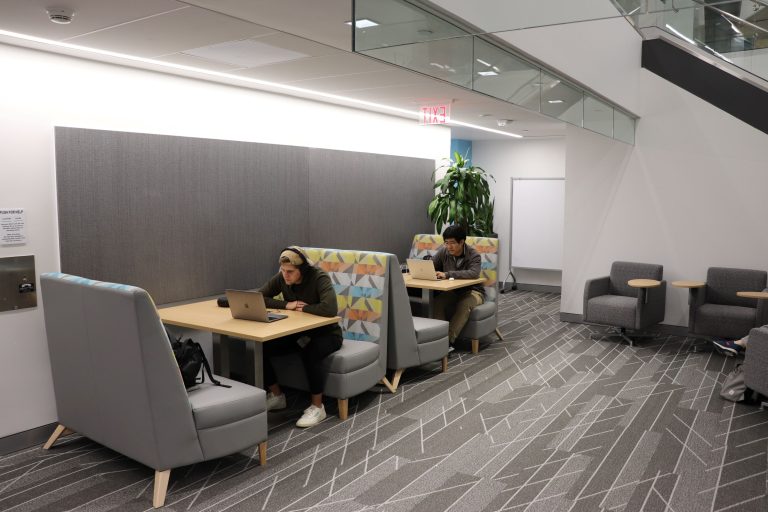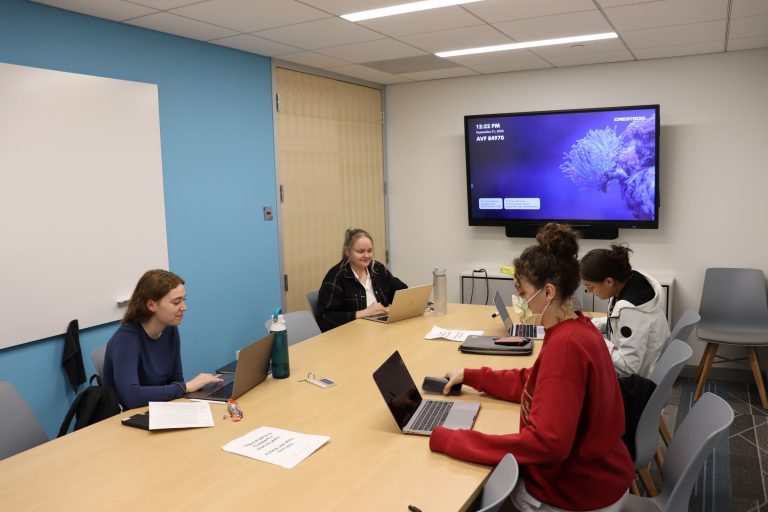About HSLS
The Health Sciences Library System (HSLS) remains central to advancing the University of Pittsburgh’s missions in education, research, clinical care, and community outreach for its schools of the health sciences and the broader health sciences community. HSLS provides biomedical information resources and expertise via our physical and virtual locations – Falk Library and the HSLS website. In addition, clinical e-resources licensed by HSLS are available across the UPMC Health System via the UPMC Health Sciences Digital Library.
In addition to these essential services, HSLS leads the Network of the National Library of Medicine All of Us Program Center (NAPC), a multi-year cooperative agreement playing a vital role in coordinating training, programs, and partnerships in support of the NIH All of Us Research Program.
This year, HSLS staff engaged in a comprehensive strategic planning process with the guidance of Janice J Consulting. Focus groups, interviews, and data analysis were used to gather insights from across the health sciences, identifying emerging needs and opportunities. All staff participated in a day-long retreat to explore strategic directions. Following a series of meetings, we collaboratively defined the mission, vision, values, and strategic priorities that will guide HSLS into the future.
Our Mission
HSLS is a catalyst for academic and clinical excellence, cutting-edge research, and the advancement of community engagement, health equity, and diversity initiatives across the University of Pittsburgh Health Sciences community. We are committed to leveraging our unique expertise to provide essential and accessible resources, innovative services, and inclusive spaces that empower our community and strengthen the University’s reputation as one of the nation’s leading academic institutions. Our team prioritizes collaboration and partnership, makes data-driven and informed decisions, and promotes a culture of continuous improvement that is responsive to evolving needs and aligned with strategic priorities set for the Health Sciences.
-From the 2024 Strategic Plan
Our Team
Our team is composed of 23 faculty librarians and 22 staff. Faculty librarians support instruction, research, and scholarship through innovative programs that adapt to the changing needs of an active research and learning community, including Liaison Librarians, Data Services, Scholarly Publishing, Advanced Literature Searching, Molecular Biology Information Services, and History of Medicine. The HSLS staff supports operations through front-line services, onsite technology support, document delivery services, web and marketing development, metadata, digital resource advancement, and administrative support.
Our cooperative agreement to function as the Network of the National Library of Medicine All of Us Program Center (NAPC) employs an additional eight staff and two faculty librarians. These individuals are integrated into HSLS as University of Pittsburgh employees.
Staff & Faculty Changes
HSLS New Hires
Jim Lombardi, Main Desk Technology Lead
Gates Marquez, NAPC Program Manager
Brianne Miller, NAPC Instructional Designer
Sarah Price, Main Desk Associate
Daniel Scullion, NAPC Instructional Technology Manager
HSLS Promotions
Dominick Caimano, Web Applications Developer
Amos Glenn, NAPC Instructional Design Manager
Julia Reese, Digital Library Services Librarian
HSLS Departures
Brendan Vaughan, Main Desk Assistant
Our Physical Space
35,000 visitors to Falk Library.
2,773 bookings of the library’s
five group study rooms.
106 sessions in the Falk Library Classroom.
Falk Library, located in Alan Magee Scaife Hall, continues to be a place of study and inquiry for the Health Sciences community. While our footprint was small in FY 24, the six study carrels, two booth seats, and eight seats at study tables were well utilized, as were our public computers. When not reserved for instruction or other events, the library classroom provides table-based study seating for an additional 25-50 people.
Construction work within the library continued throughout FY 24, but our transition to the library’s West Wing space provided new and exciting areas for Health Sciences students, including five reservable group study rooms. The Falk Library Classroom was used for a variety of sessions ranging from HSLS classes, School of Medicine classes, accommodation testing spaces, and other events.



Our Marketing
26,892 clicks on HSLS content
by my.pitt.edu users,
a 300% increase from FY 23.
21,500 subscribers to the
weekly Upcoming HSLS
Classes and Events email.
21,800 subscribers to the
monthly HSLS Update
newsletter.
291,627 views and clicks on
the Upcoming HSLS Classes
and Events email.
10,000+ social media impressions
across platforms.
72% increase in Instagram followers.
HSLS continues to promote our resources, services and events in a variety of modalities. For example, via the Pitt Events Calendar, information shared about HSLS classes has resulted in many clicks from the calendar platform to the HSLS website. HSLS content, including events, classes, services and resources appears often on digital signage across Alan Magee Scaife Hall and the Schools of the Health Sciences. Multiple times in FY 24, HSLS content has appeared in Pitt Wire, the University Times, and other publications.
The HSLS Update is a monthly digital publication that covers topics of interest for the health sciences community and provides information about HSLS resources and services. Additionally, the Upcoming HSLS Classes and Events email, sent weekly, provides direct links to class registration.





